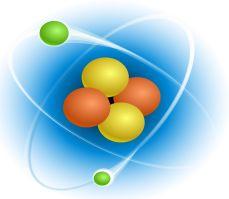 “Physical chemistry studies the principles that govern the properties and behavior of chemical systems”
“Physical chemistry studies the principles that govern the properties and behavior of chemical systems”
Physical chemistry can be divided into four main fields: thermodynamics, quantum mechanics, statistical mechanics, and kinetics.
The study of chemical systems can be carried out at two levels: microscopic and macroscopic. At the microscopic level, we work with atoms and molecules, while the macroscopic level involves studying the properties of large amounts of matter.
thermodynamics studies matter from a macroscopic point of view, quantum mechanics from a microscopic point of view, and statistical mechanics has the mission of connecting both worlds.
Thermodynamics studies the equilibrium properties of a system, and the changes produced in these properties during a process.
Quantum mechanics studies atomic structure, bonding in molecules, and spectroscopy.
Statistical thermodynamics allows us to obtain macroscopic properties of a system from atomic or molecular properties.
Finally, kinetics studies the speed of chemical reactions, diffusion processes and the flow of charge in an electrochemical cell.
Physical chemistry
Definition of Physical Chemistry
- Details
- Written by: Germán Fernández
- Category: Start
- Hits: 2272



